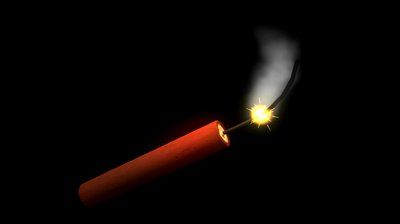
I can be so lost, and still what I need to see will still arrive. Lost is a state of mind, anyway. It is actually impossible to be lost. One only needs to keep an open mind in the moment. Then something will find you to eliminate lostness.
One day in summer of 2012, I was lost in the library at University of Illinois. By volume, it is one of the largest public university libraries in the world. Navigating the library takes an education in space and what fits into space. Librarians have a real purpose here. I am awestruck by the web of information that must be mastered and the librarian's function in a library this size. It is like a corporation, but instead of nebulous numbers that pass between departments in 0s and 1s, a large part of the library is hard copy.
That is changing of course. Now librarians have to be computer savvy, too. That's OK, the whole universe could be 1s and 0s.
In such ways, the whole universe is one big living library. Information is everywhere, and is organized appropriately. Our brains and bodies are not able comprehend the organization of the universal, or even planetary, library that we live within. Or even the library that is inside of us all. We cannot even predict a snowstorm accurately. But sure enough, that snowstorm will happen exactly as it is supposed to. There is no other way.
We split up the universal library into departments that allow people to concentrate on miniscule parts of the library so it can become manageable for everyone. There is biology and its numerous subfields, physics and its numerous subfields, mathematics and its numerous subfields. Not to mention all the fields occupying the space of our awareness of it all: psychology, philosophy, and the like.
At this huge university library I did an impromptu experiment: I let go of choice. I did not allow my mind to try to find one particular book. I let a book come to me. I haphazardly picked a floor, randomly picked a spot on that floor, casually picked a shelf row, indiscriminately picked a section of the row, and then closed my eyes and grabbed a book by feel. Whatever book I was to be led to, I was going to check out and give a go.
I open my eyes, I am holding a book:
Mystic Christianity by Yogi Ramacharaka. I check it out. I read it. I love it. I recommend it to people...some people. I write a
review on Amazon for the book. Three people have found it to be helpful to date.
Ok, now lets sit down for a moment. When I picked up this book and read it, it's contents gave me an amount of contemplation cud to chew on that seemingly was just the right amount for me. I couldn't chew on any more or any less at that moment of time in my life. I was in a bit of an experiential tizzy in those days. I was trying to marry various religious thoughts of the world into something that made sense to me. I was going a little crazy finding inconsistencies everywhere. Its hard to relate to other people coherently. All I can say is that this book helped me get back to the simplicity that I instinctively understood, but forgot for a time. Much of the book offered dynamics that, for me, rang quite true. It squared me, and got me ready for newer and deeper questions. How could I randomly chance on this enduringly helpful book in such a dauntingly large library? I was not consciously looking for answers, but yet they came to me. It was a mystifying experience.
Years before that moment in time at the library, sometime on the foggy streets of San Francisco, another book came into my possession. It bore the name
Advance Course in Yogi Philosophy and Oriental Occultism. The author was the same as the library book above: Yogi Ramacharaka. People put books on street corners in San Francisco sometimes, to allow passerbies the chance to root through them. I happened to be a passerby of the box that happened to have this book, and I happened to stop and browse the books. I chose this one book, in hardback. I never read it, but kept it on my shelf. I also completely forgot about it. I did not remember my possession of this book back in Illinois.
Now, shoot to present day, several years later. I am in Connecticut. After half a year of living in the Nutmeg State, I finally get around to unpacking the box that contained this book. I look at it, and because of the authorship, immediately recall Mystic Christianity and how it left an impression on me in Illinois. I get goosebumps and chills. How did this dude get into my life again? I stop unpacking the box, and start page one, feeling compelled.
Earlier in the same day, I wrote a negatively toned email to my dad about certain funks I have had with my view of reality versus others' views of reality with a dash of feeling sorry for myself because of my sciatic nerve issues. I was getting things off my chest. Dad is the best at taking the heat. My depression was an unlikely mix of philosophy and physiology.
Page after page I read the book I newly rediscovered. Slowly my distresses dissolve into truth, paragraph by paragraph my uncomfortable thoughts soften. Page 55 hit me hardest, right at the end of chapter two. By the end of two chapters I break into a smile. I am ready to be my best self again. I am a man of the world again, ready for its challenges.
This universal library is complex. I feel as if I am living my own life, making my own decisions. Nonetheless, I cannot help but also feel there are forces unseen lending a hand in my decisions. The universal librarian leads me to the books I should read, the experiences I need to have. It is strange, yet I also feel it shouldn't be strange at all. Twice I have been lost, only to be found via books that found me. They were both freely acquired, and both hard-bound. Quality all around. Life is has such quality when I let it come to me.
Click➙
Info on Ramacharaka and authorship of these books (*bonus coincidence: there is an Illinois connection).


